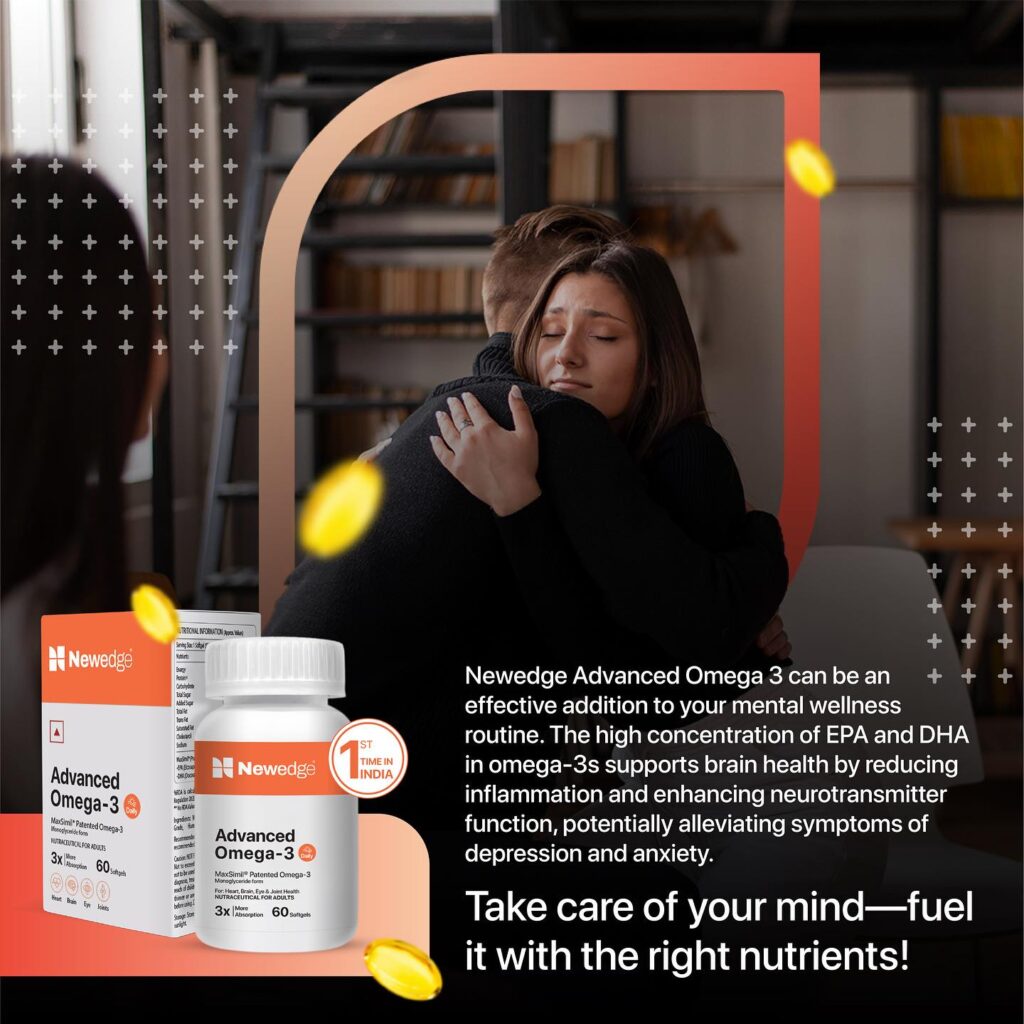Omega-3 fatty acids are well-known for their myriad health benefits, from reducing inflammation to supporting cardiovascular health. However, their role in post-workout recovery is often overlooked. This blog explores how incorporating omega-3 capsules or best omega 3 tablets into your fitness regime could enhance recovery and overall physical health.
Understanding Omega-3 Fatty Acids
Omega-3 fatty acids are essential fats the body cannot produce on its own. They are crucial for brain function as well as normal growth and development. There are three main types of omega-3 fatty acids: ALA (alpha-linolenic acid), found in plant oils, and EPA (eicosapentaenoic acid) and DHA (docosahexaenoic acid), commonly found in marine oils.
Omega-3s and Physical Exercise
During rigorous exercise, the body undergoes stress characterized by inflammation and oxidative damage. Consuming omega-3 capsules or omega tablets can be significantly beneficial in managing this stress. Omega-3 fatty acids have anti-inflammatory properties that can help reduce muscle soreness and speed up the recovery process.
The Role of Omega-3 in Muscle Repair and Recovery
Reducing Inflammation: Post-workout inflammation is a natural process whereby the body repairs muscle damage caused by exercise. However, excessive inflammation can lead to prolonged muscle soreness and delayed recovery. Omega-3 fatty acids help modulate the body’s inflammatory responses, promoting quicker recovery.
Enhancing Muscle Protein Synthesis: EPA and DHA have been shown to stimulate muscle protein synthesis, which is essential for muscle repair and growth. Incorporating best omega 3 capsules into your diet can facilitate the repair of exercise-induced muscle damage.
Improving Blood Flow: Omega-3 fatty acids can enhance blood flow to muscles during exercise, supplying more oxygen and nutrients which are critical for recovery and growth.
Reducing Oxidative Stress: Intense physical activity can increase oxidative stress, leading to muscle fatigue and impaired recovery. Omega-3 has potential antioxidant properties that help reduce oxidative markers and protect against oxidative damage.
How to Incorporate Omega-3 Into Your Post-Workout Routine
Consuming best omega 3 tablets or omega tablets is a convenient way to increase your omega-3 intake. It’s generally recommended to take omega-3 fatty acids immediately after your workout to capitalize on their anti-inflammatory effects and aid in the muscle recovery process. However, the actual timing might vary based on individual preferences and lifestyle.
The Best Sources of Omega-3
While supplements like omega 3 capsules are an effective source, incorporating natural sources of omega-3 into your diet is also beneficial. Fatty fish such as salmon, mackerel, and sardines are excellent sources of EPA and DHA. Plant-based sources like flaxseeds, chia seeds, and walnuts provide ALA, which the body partially converts to EPA and DHA.
Newedge Healthcare and Omega-3
Newedge Healthcare offers a premium range of Omega-3 supplements tailored to support various health aspects, including post-workout recovery. Our best omega 3 capsules are designed using MaxSimil® patented fish oil that enhances the absorption of fatty acids three times more than regular fish oil. This makes Newedge products not only effective but also cost-efficient for maintaining daily health.While supplements like omega 3 capsules are an effective source, incorporating natural sources of omega-3 into your diet is also beneficial. Fatty fish such as salmon, mackerel, and sardines are excellent sources of EPA and DHA. Plant-based sources like flaxseeds, chia seeds, and walnuts provide ALA, which the body partially converts to EPA and DHA.
Our commitment at Newedge Healthcare is to ensure that everyone has access to high-quality, sustainably sourced, and scientifically backed products. Our Omega-3 supplements can help athletes and fitness enthusiasts accelerate recovery times, improve cardiovascular health, and achieve overall well-being.While supplements like omega 3 capsules are an effective source, incorporating natural sources of omega-3 into your diet is also beneficial. Fatty fish such as salmon, mackerel, and sardines are excellent sources of EPA and DHA. Plant-based sources like flaxseeds, chia seeds, and walnuts provide ALA, which the body partially converts to EPA and DHA.



